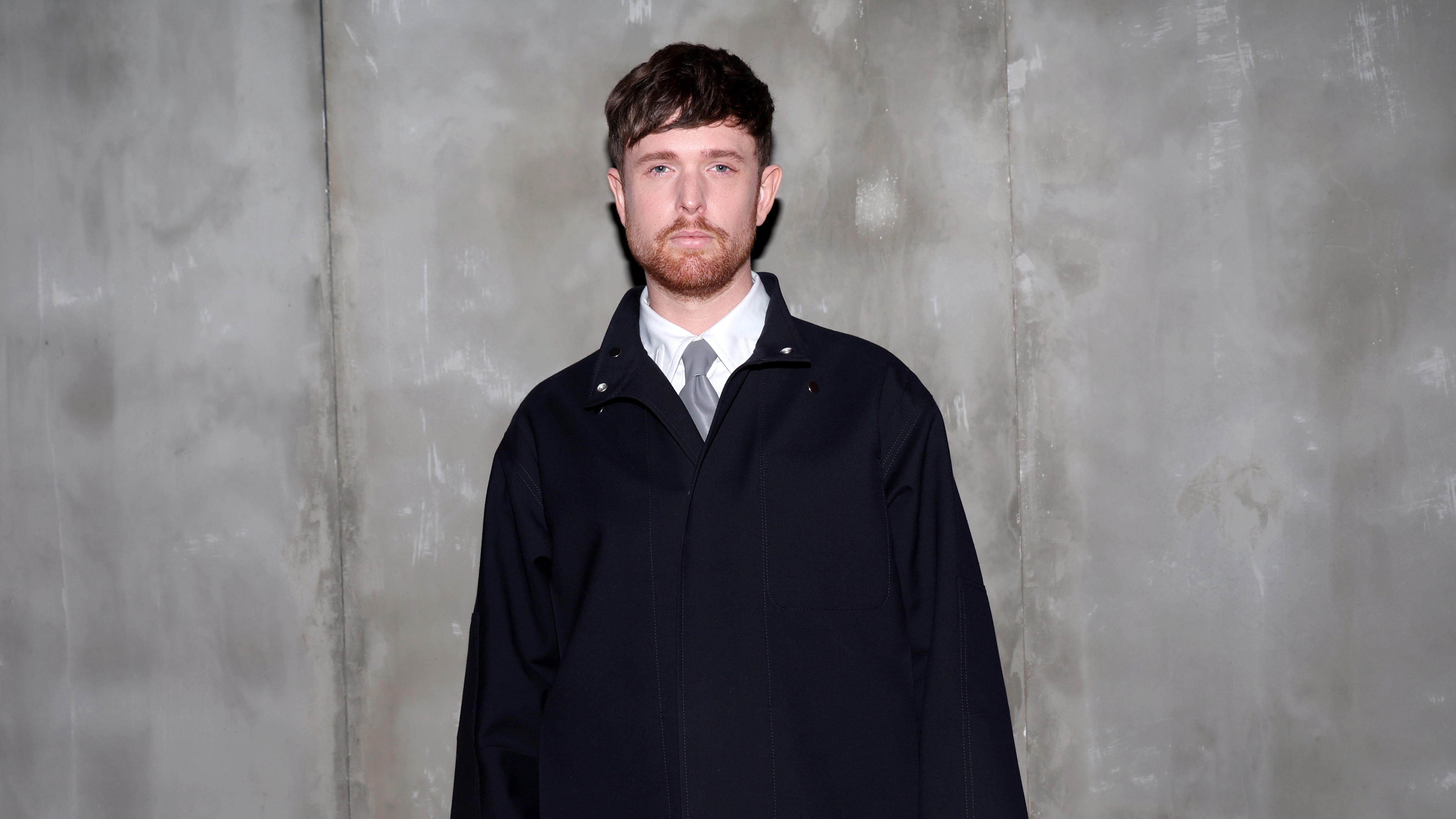"I was having regular panic attacks about not being in control and being exploited": James Blake on how ditching his label and going independent has revitalized his career
The Grammy-winning electro-crooner sings the praises of innovative platforms that are helping musicians take control of their finances

It’s safe to say that James Blake has reinvented himself. Formerly the darling of a major label, able to use his work to show how far they were willing to push the boat out artistically (while reaping the financial rewards behind the scenes), he’s since gone it alone and – by all accounts – is all the better for it.
Indeed, Blake seems more present than ever, having recently appeared alongside Timothée Chalamet for his Dylan-plugging Saturday Night Live performance (playing three suitably off-the-radar numbers) and releasing his music his way via platforms such as Indify.
Now, in addition to being a creative, independent and successful musician, effectively living beyond the music industry’s grid, he’s become quite the evangelist for his mould-smashing music biz breakout and spends just as much time signposting the road ahead that he’s forged as making music.
Following his observations that all his label ever told him to do was "make more TikToks", that "the majors have prioritised temporary virality over art for too long, and that's why the model is crumbling", and that "the brainwashing worked and now people think music is free", Blake has once again outlined his take on where music has to go next and – unusually in this game – it’s a story with a happy ending.
In a new interview with industry veterans Variety, the publication clearly enjoys having such an outspoken, anti-establishment, alternative media mouthpiece under its microscope and the nothing-to-lose Blake doesn’t disappoint, turning established notions on their head and painting a rosy picture for his own future and anyone willing to come along for the ride.
"Speaking out is tough, and being willing to put it all on the line and sacrifice the favor of the industry machine is certainly not easy for any artist to do," he admits. "I guess part of my drive is to remind artists that they are the boss of their business."
"At one point I was having regular panic attacks about not being in control of anything, and being exploited, and worrying about money, and I wasn’t being very creative at that time. The feeling of regaining control and autonomy is empowering to the point where I rediscovered a sense of creativity that I hadn’t had in many years."
Want all the hottest music and gear news, reviews, deals, features and more, direct to your inbox? Sign up here.
"Streaming is funny…"
“I work with a lot of younger artists and I’ve seen them being messed around by a label or management contracts that they couldn’t get out of, with the managers sabotaging them so they couldn’t release music. The amount of contract-based injustice that I’ve seen over the years is another inspiration for this, even though my deal was was relatively good compared to the kind of deals I saw from around 2015 [when streaming took hold] onwards,” he explains before outlining just how he makes his magic (aka money) these days.
And, perhaps surprisingly, in a music world where there's no shortage of anti-streaming sentiment, it seems that Blake doesn't feel the same way. The real 'enemy' is elsewhere he suggests…
“Streaming is funny because, on the one hand, yes, when you break it down, they pay [on average] $0.002 or $0.003 per stream, which the artist splits 80-20 with the label, then 30% off the top goes straight to the streaming service – it looks like peanuts, right? But when you are not splitting it with a label you can make serious money as an independent artist through streams and those other revenue sources.”
“On Indify, artists are essentially meeting teams and using their instincts to find the right people for them, marketing, PR, whatever. And it encourages an equity mindset, where you can cut people in on a slice of your future profits. So everybody has more incentive to push your project up the hill; they’re financially incentivized in a way the label never would be.”
And it’s not just Indify that Blake has discovered and wants to push forwards.
“I think that Vault proposes an interesting new idea, which is access to unreleased music. A lot of people are interested in hearing all of the music an artist makes, not just the singles and the official albums, and not just for big artists. Vault is a safe space to release music to fans who already support you without opening it up to the whole world, and the fan has a certain level of exclusive access. There isn’t really a middle ground between my hard drive and those fans.”
When there’s enough people, it starts to look like a solid monthly income — and a dependable monthly income is the thing that a musician virtually never has
“Whenever I send a message, or upload a song, all of them get a text message or email. I think Vault is closing the loop on fan interaction with artists, and I’ve been building a community that I can actually reach, that is basically an inner circle for an artist, for a small subscription fee. And when there’s enough people, it starts to look like a solid monthly income — and a dependable monthly income is the thing that a musician virtually never has.”
And it’s not just music sales that Blake has his eye on. There’s the small matter of taking back ownership of your live audience too.
“I’ve played to upwards of something like a million people in my lifetime, and imagine if I had the ability to contact all those people and tell them that I’ve got a show — I would never have to worry about selling out a show again.
“So I partnered with a company called Bside. In New York, we did an 800-ticket drop and didn’t tell people where the venue was. But then we found a venue that was of the appropriate size and said, “Would you like to put on the show? No risk for you, no risk for us: It’s already sold out.”
“And we were able to keep the ticket prices uniform and not have any “dynamic pricing” bullshit. The artist is actually able to broker the deal and negotiate it, and not have to split that money with either a venue or a ticketing company; plus, those people know that they bought the ticket directly from me. We’d cut out the middlemen.”
“My vision is that all of these things work together, but we’re not there yet,” he goes on. “And I’m not saying anything that hasn’t been said before – I’m just trying to offer new alternatives.”
Whatever he’s doing, it sounds like it’s working.
Daniel Griffiths is a veteran journalist who has worked on some of the biggest entertainment, tech and home brands in the world. He's interviewed countless big names, and covered countless new releases in the fields of music, videogames, movies, tech, gadgets, home improvement, self build, interiors and garden design. He’s the ex-Editor of Future Music and ex-Group Editor-in-Chief of Electronic Musician, Guitarist, Guitar World, Computer Music and more. He renovates property and writes for MusicRadar.com.
You must confirm your public display name before commenting
Please logout and then login again, you will then be prompted to enter your display name.

